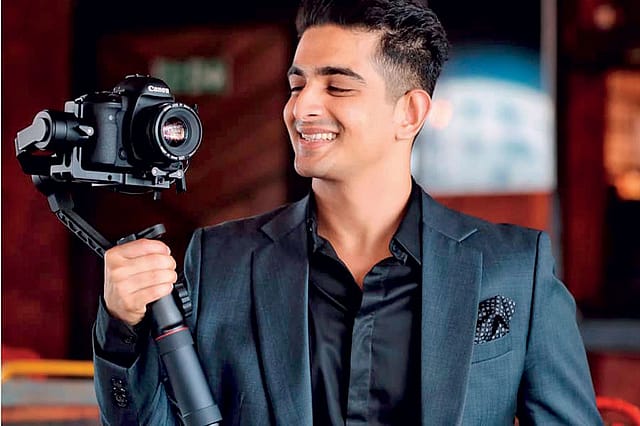Ranveer Allahbadia: Laugh Track or Attack?

It began with a lewd question, asked on a public stage, its weight amplified by the presence of an audience conditioned to laugh first, think later. The words, spoken by Ranveer Allahbadia, known online as BeerBiceps, were met with laughter—coarse, reflexive, unthinking. Samay Raina, the show's host, chuckled along, and for a few seconds, the world continued as it had always done. But then, the tides of the internet shifted. This was something too explicit, too irretrievable. The joke ceased to be just a joke. It became an indictment.
Allahbadia issued a sheepish apology when the backlash arrived in full force. The National Human Rights Commission intervened, urging YouTube to remove the episode. Legal complaints were filed, formal condemnations drawn up. A reckoning was underway, not just for India's Got Latent but for the whole ecosystem of comedy and digital entertainment, where the boundaries between humour and impropriety had always been blurred.
For Raina, this was familiar territory. His trajectory—from a Kashmiri Pandit upbringing to a stand-up career launched by Comicstaan, to internet stardom—had been shaped by the same instinct for provocation that defined so many before him. His show, part talent competition and part unscripted comic commentary, had always traded in risk. The accusations were familiar—mockery of differently-abled contestants, jabs that hit too deep, laughter that curdled into something else.
And then came the inevitable countercurrent: the argument that humour has always trespassed, that its purpose is disruption, that outrage is merely the cost of doing business. Every decade, the same cycle unfolds: comedians push against the edges, audiences recoil, defenders invoke free speech. The battleground has moved—from the smoke-filled clubs and newspaper columns of an older era to YouTube comment sections and legal petitions—but the fundamental struggle remains.
AIming High
20 Feb 2026 - Vol 04 | Issue 59
India joins the Artificial Intelligence revolution with gusto
There is an argument, too, that comedy leaves a residue. That shows like India's Got Latent normalise a certain coarseness, much in the way that some Bollywood films, with their casual violence and machismo, have been accused of doing. The stories we laugh at, the ones we let pass unchallenged, shape us in ways we rarely acknowledge.
And yet—what of the alternative? If every misstep invites censorship, if every joke is measured first against the most sensitive ear in the room, what remains? The human instinct for laughter is not easily contained, nor is it a neutral force; it wounds, it mocks, but it also reveals. The goal, then, is not to extinguish, but to refine.
Every so often, comedians' perceived transgressions kick off a broader discourse on the boundaries of comedy and the responsibilities of those who wield humour as both shield and weapon. American comic Matt Rife, whose meteoric rise was fuelled by TikTok virality, found himself at the centre of such a storm with his Netflix special, Natural Selection. The backlash was swift—an opening joke about domestic violence landed with a thud, and his attempt at deflection, a link to a website selling helmets for individuals with disabilities, only deepened the outrage. What remains is the familiar question: Where does comedy end and cruelty begin?
There is a particular strain of comedian—one whose ribald, sexist humour, long excused as "just jokes" eventually reveals itself as autobiography. American actor and comic Louis C.K., whose sets were littered with crude asides about power and sex, was later exposed for serial sexual misconduct that eerily mirrored his own material. Russell Brand, once a brash, self-styled libertine whose comedy reveled in degrading women, now faces allegations of sexual assault from several women. Their downfall punctures the convenient illusion that offensive humour exists in isolation, revealing instead how often it serves as a mask for real transgressions.
The true test of a society's values is not in what it allows, but in what it chooses to celebrate. The problem with these comedians, with the whole lineage of humour that mistakes cruelty for cleverness, is that they flourish, that they are elevated, that their audiences laugh and return for more. Perhaps that is the real indictment—not of one show, not of one comedian, but of a culture so comfortable with its own ugliness that it can no longer tell when it is looking into a mirror.
